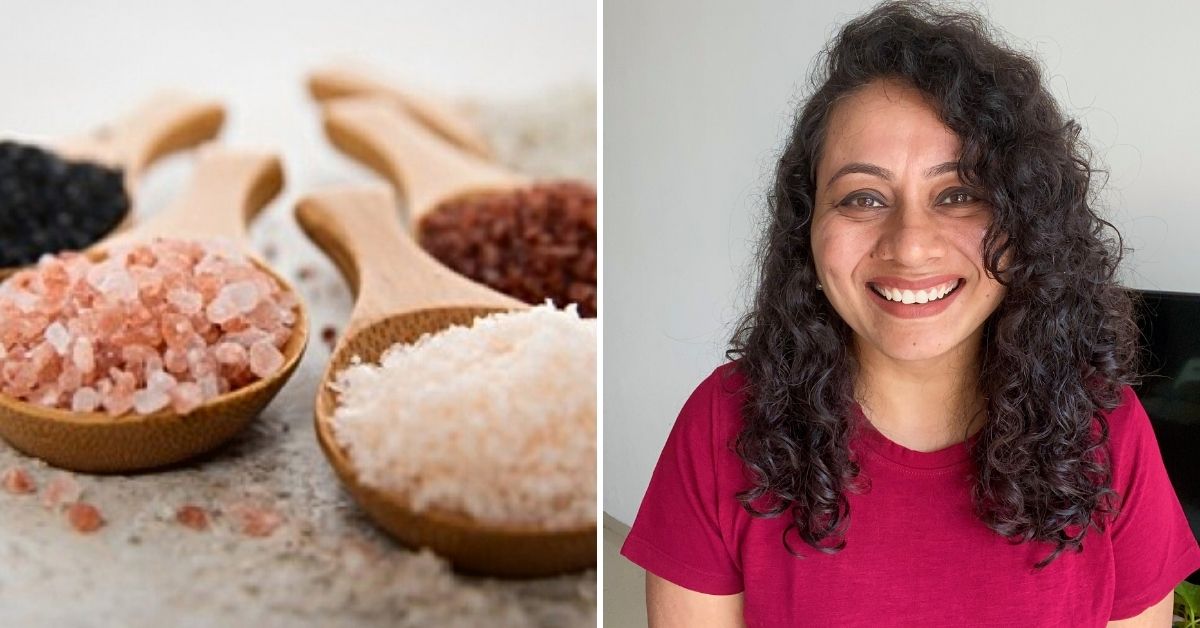We Indians rarely eat a dish without salt in it!
A versatile ingredient, salt aka sodium chloride not only enhances food’s flavour but also holds several health benefits. The mineral is essential for human health to maintain plasma volume and good metabolism, and regulate body water content and electrolyte balance. It also helps the transmission of nerve impulses and maintains normal cell function.
However, excessive consumption of salt could result in serious health problems like hypertension and cardiovascular diseases.
Today, a variety of salts are available in the market that comes in different colours and textures, each claiming to have different properties. From pink salt to black salt, it can be confusing to understand which salt variety would work best for our health.
There are many who glorify the usage of these salts. But, Amita Gadre — a Pune-based nutritionist, is trying to break such myths through her Instagram video, where she lists out five important facts about salts backed by science.
Amita starts with her insight into the content of different varieties of salts. She says, “Irrespective of the colour of the salt — be it pink, grey, yellow or white, it is all sodium chloride and has the same effect on blood pressure.”
She points out that eating any coloured salt does not help to improve digestion, lose weight or improve gut health.
Be it salt of any colour, she highlights that one should not consume more than one teaspoon per person per day.
Amita further says that white common salt is iodised for a reason, and it is meant for providing iodine content, which is difficult to gain from the standard Indian diet.
“Most of the pink salts, mineral salts or rock salt that you get in the market today are non-iodised, and eating non-iodised salt can actually put you at risk for hypothyroidism,” she concludes.
Edited by Pranita Bhat; Video credit: Amita Gadre (@amitagadre on Instagram)
If you found our stories insightful, informative, or even just enjoyable, we invite you to consider making a voluntary payment to support the work we do at The Better India. Your contribution helps us continue producing quality content that educates, inspires, and drives positive change.
Choose one of the payment options below for your contribution-
By paying for the stories you value, you directly contribute to sustaining our efforts focused on making a difference in the world. Together, let's ensure that impactful stories continue to be told and shared, enriching lives and communities alike.
Thank you for your support. Here are some frequently asked questions you might find helpful to know why you are contributing?

